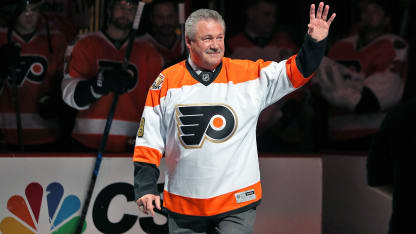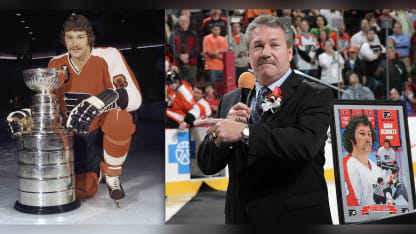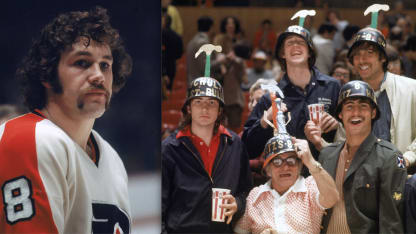"I was the first baby born in the Waldheim Hospital (Oct. 14, 1949, two weeks after it had opened). We moved to a farm, where I lived for the next eight years, then back to Waldheim when I was in Grade 3 and began to play a bit of organized hockey. When we came back, the hospital was already shut down and we lived downstairs in the place. My late brother, Ray, and I would play hockey in the long hallway leading to the furnace. A few years later, they tore the place down. I don't know what that means. … Then we moved to Rosetown (about 100 miles southwest). I haven't been back to Waldheim in quite a few years, but I might take a drive there next month. I'm going to Delisle with my former linemates, Orest Kindrachuk and Don Saleski, as well as Brian Propp, another Saskatchewan boy, for the (Aug. 10) Delisle Sports Celebrity Dinner."




















